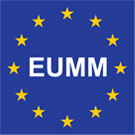EUMM monitors who deal with matters relating to human rights and the humanitarian aspects of IDPs will focus on the situation for people with physical disabilities among the IDPs because of the vulnerability of their situation.
The view of some of the EUMM Monitors dealing with these matters is that the disabled are not exactly the first people among the IDPs whom they encounter during their daily patrols to the different settlements. This is possibly one of the reasons that the monitors do not have much information about people suffering from disabilities in the Area Of Responsibility covered by Field Office Tbilisi based in Mtskheta. In general, for a variety of reasons, these people are more hidden from the wider social environment so it may have been difficult for EUMM to come in contact with them, and therefore, the question has been asked if the EUMM ought not to deliberately seek them out. Thus, EUMM monitors are working on this new project in order to know how many IDPs with physical disabilities there are, and what type of disability they have.
Therefore, the main aim of this report would be primarily to enable EUMM to identify and come in contact with people with physical disabilities in order to later allow them to highlight their own situation. This means that it is not, then, the impairment itself that should be the main point of consideration of the report, but rather the report shall focus on the existence of unfair treatment of disabled people, or of violations of their human rights, which may be related to the objective and the subjective reality they may have to face daily because of their disability. By focussing on their situation, and by giving them and their immediate families the opportunity to speak up and to express their views, EUMM can give people with disabilities a greater sense of self-worth and enhance their self-esteem, which itself can play an important part in EUMM’s confidence building measures.
